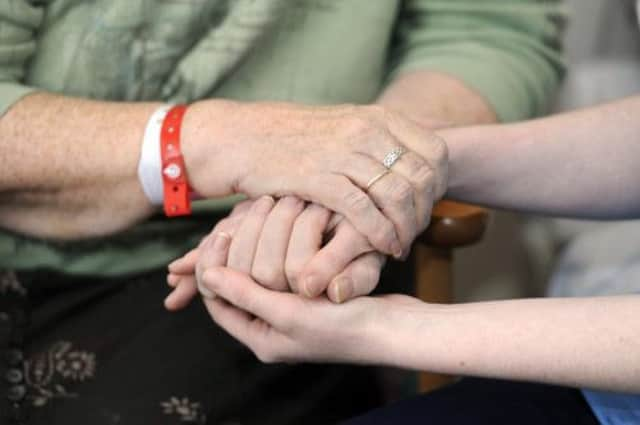Volunteer ‘friends’ help lonely avoid an early death


Scottish charity Health in Mind is hoping to roll out its befriending service, whereby trained volunteers are linked up with people who are on their own so they can spend time together, go on trips or just talk.
The project comes after a study found people who were not in regular contact with friends and family were 50 per cent more likely to die early.
Advertisement
Hide AdAdvertisement
Hide AdIn their efforts to reduce social isolation in the Scottish Borders, the charity has been training volunteer befrienders.
Those recruited to the re:discover befriending service are matched with someone in need of company and they will spend two hours a week with them, perhaps going for coffee, attending a group, using public transport or visiting the gym.
Julia Flockhart, support and development worker from Health in Mind, said the time given by volunteers each week could make a huge difference to someone who is isolated, no matter what their age.
“You can lose your zest for life and feel isolated for many reasons, such as illness, losing a family member or being made redundant,” she said. “It can then become hard to leave the house, so friendships drift and the increasing isolation can lead to mental health difficulties such as depression and anxiety.”
Research by University College London, published in the Proceedings of the National Academy of Sciences, highlighted a link between social isolation and early death. It suggested that people in later life who are not in regular contact with friends or family are at greater risk of dying before their time.
Health in Mind believes their befriending service, which they now hope to extend across Scotland, will help tackle this problem. Once the training is completed, the charity said volunteers would be able to help the person they are matched with build more opportunities for social contact by themselves.
They would do this by supporting the person to build relationships with others, encouraging them to take part in local activities or groups and pick up old hobbies and interests as well as discover new ones.
The re:discover Borders befriending service partnerships now being established will last from six months to a year.
Advertisement
Hide AdAdvertisement
Hide AdMs Flockhart added: “The volunteer and their match will spend time together each week, gradually building the confidence and social network of the person they support.”
One of the volunteers, Richard, said the experience of being a befriender had been enjoyable for both him and positive for the person he was matched with. The 48-year-old from Galashiels said: “I was drawn to the volunteering role as I really like helping people and I enjoyed the training.
“I was matched with a really good guy and over the weeks, it’s been great to see him gaining confidence and becoming chattier. We’ve both enjoyed going to the cinema and discussing the films we’ve seen, as well as playing chess on the computer, which is brilliant and as we’re both interested in history, we’re making the most of the summer weather by getting out and about to visit quite a few castles.”
More information on the project is available at www.health-in-mind.org.uk.